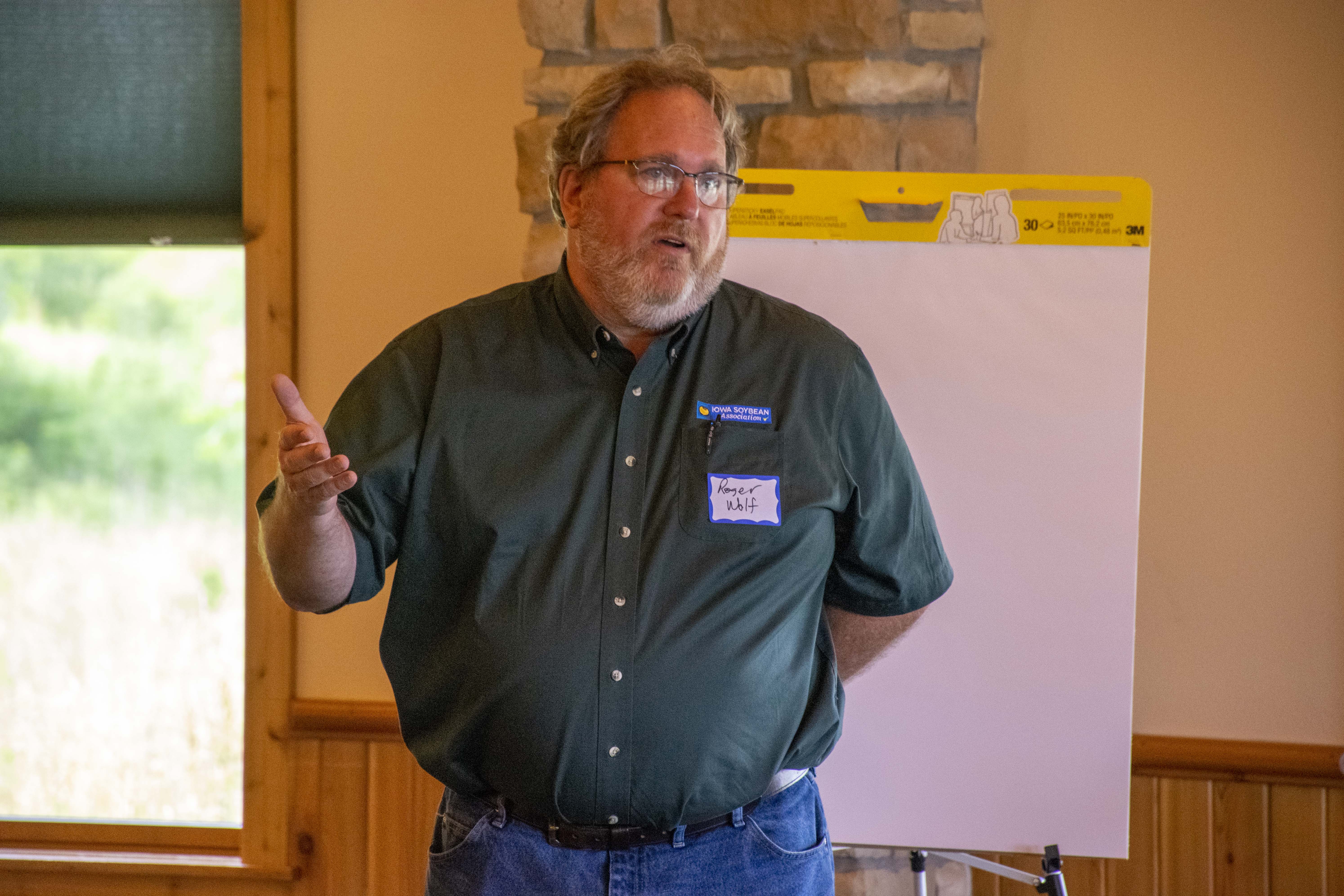
Roger Wolf, director of the ISA Research Center for Farming Innovation, leads discussion during the Regional Grassroots Town Hall event on Thursday. (Photo credit: Joseph Hopper/Iowa Soybean Association)
ISA launches Regional Grassroots Town Hall series
July 1, 2021
The Iowa Soybean Association (ISA) met with southeast Iowa farmers from Washington, Keokuk, Wapello, Henry and Louisa County at Lake Darling State Park last week to launch a series of town hall meetings to advance meaningful dialogue about agriculture and farmers’ use of conservation practices.
The Regional Grassroots Town Hall series involves eight town hall meetings across the state, elevating 40 Grassroots Champions who are uniquely knowledgeable and involved in agriculture production and soil and water conservation efforts. The goal is to better understand and articulate the challenges and opportunities associated with increased public funding for scaling up activities that improve soil and water quality.
Roger Wolf, director of the ISA Research Center for Farming Innovation (RCFI), says the effort intersects with ISA’s leadership to help farmers be more productive, profitable and sustainable.
“It’s important to have these conversations and elevate what’s needed to increase the number and scale of conservation practices,” says Wolf, who led last week’s discussion held in Washington County. “We know there is more to be done, and we want to be as relevant as we can be to the issues that farmers have.”
As a region, southeast Iowa is known for having robust crop and livestock systems and adopting conservation practices as part of a systems approach. This area is viewed as a model for the rest of the state.
Topics discussed at the inaugural town hall included widespread adoption of terraces, cover crops, no-till and other conservation practices seen throughout the southeastern landscape.
ISA farmer member Don Swanson says it’s the awareness of the vulnerable terrain in the area and the importance to the farmers.
“We want to take care of our resources,” says Swanson, who farms near Ottumwa. The Swanson farms utilize conservation practices such as no-till, cover crops, terraces, buffer strips and waterways to promote the quality of their soil and water.
The sentiment was echoed by ISA District 9 Director Tom Adam.
“We definitely have an advantage that we have a later growing season for establishing cover crops,” he says. Adam has farmed more than 35 years, and implements no-till, waterways, terraces and cover crops. He also practices alternative crop rotations by growing wheat and hay after his soybeans and corn.
ISA farmer member Michael Vittetoe said the benefits of the various conservation practices are easy to see on his family farm near Washington. But for a practice to work, he says, there can be no half measures.
“It’s kind of a whole system type deal but you have to completely change how you work, to make it work the way it works,” Vittetoe says.
To learn more about ISA and the Research Center for Farming Innovation, go to https://www.iasoybeans.com/research.
Back